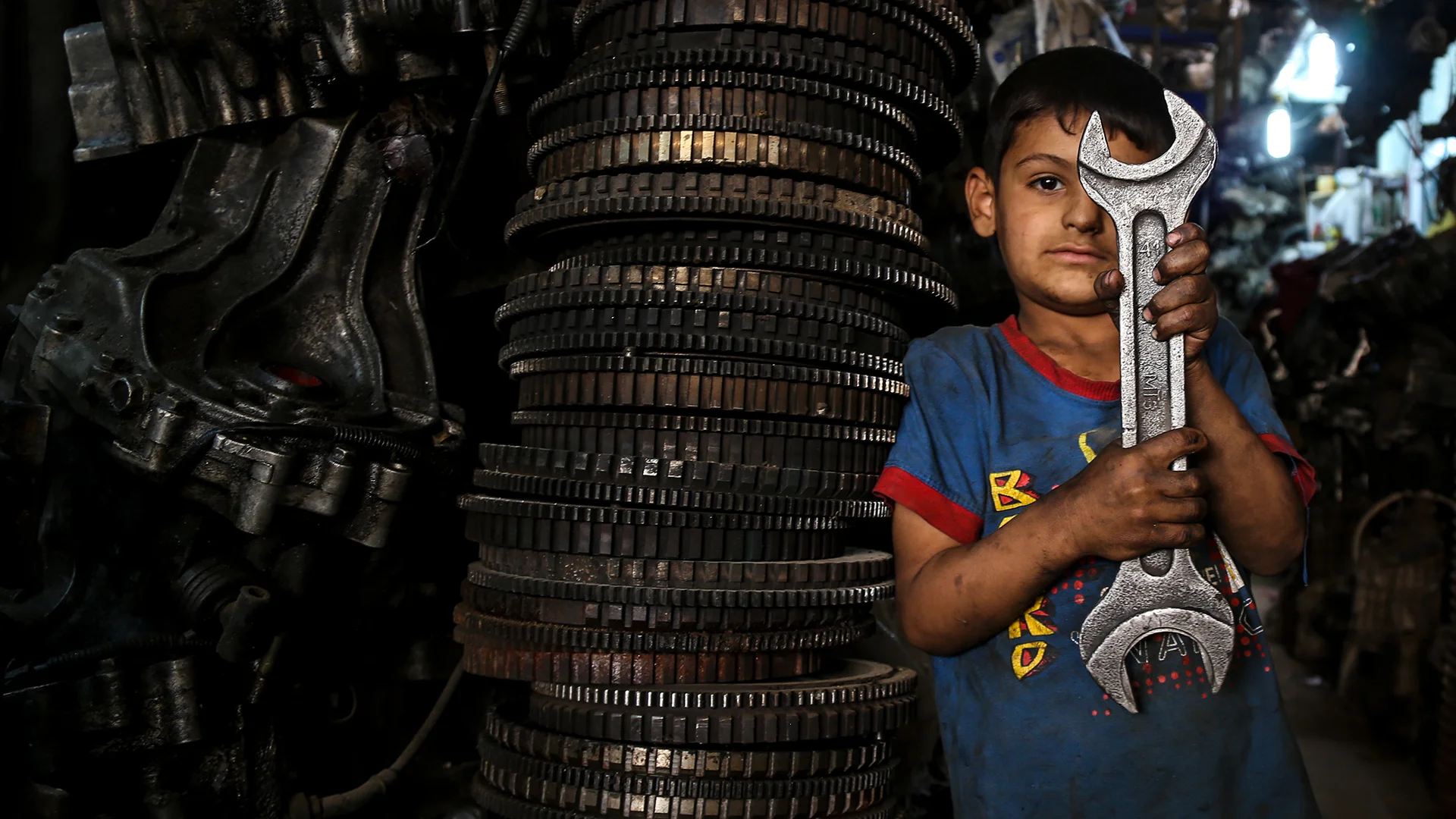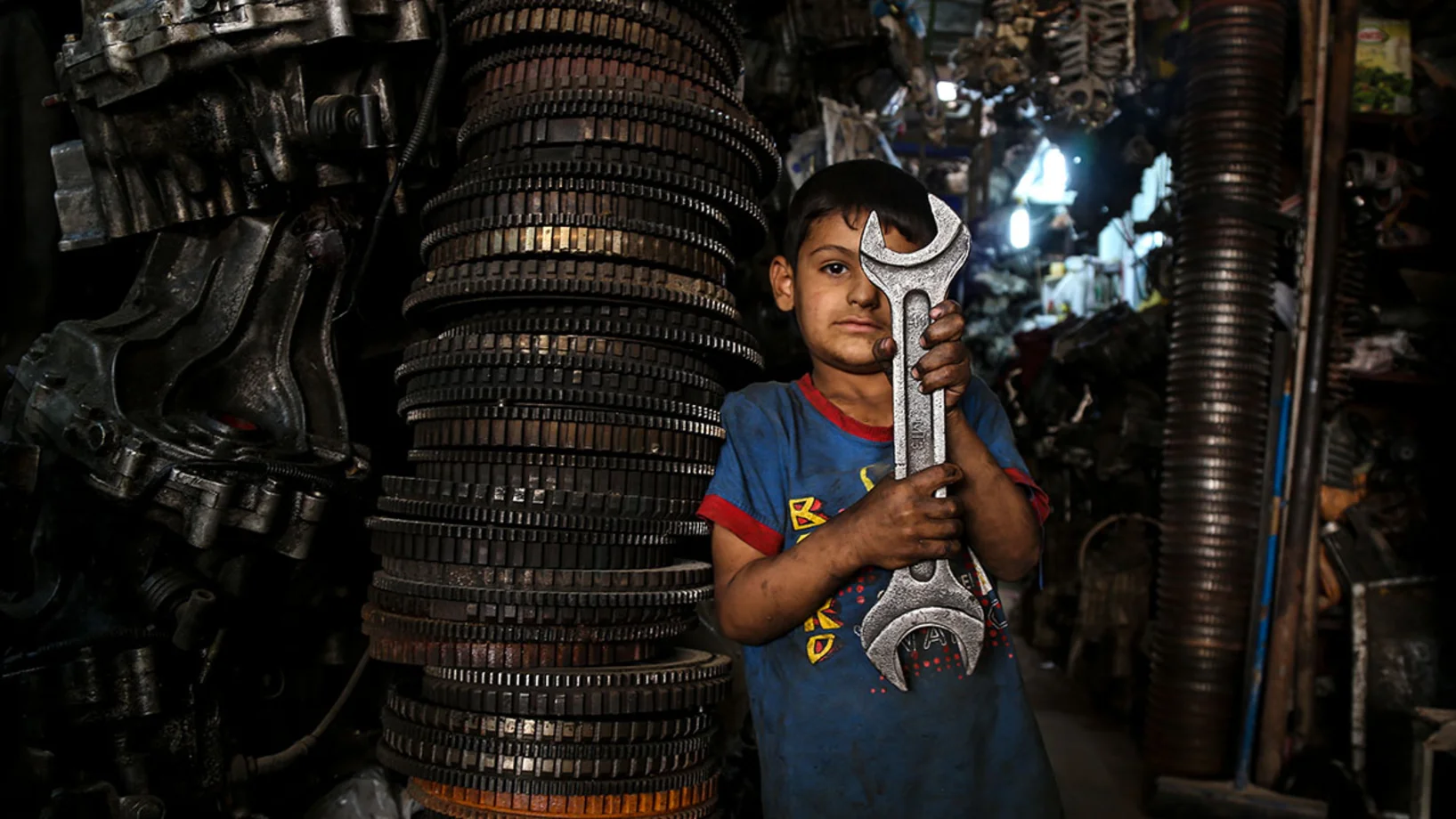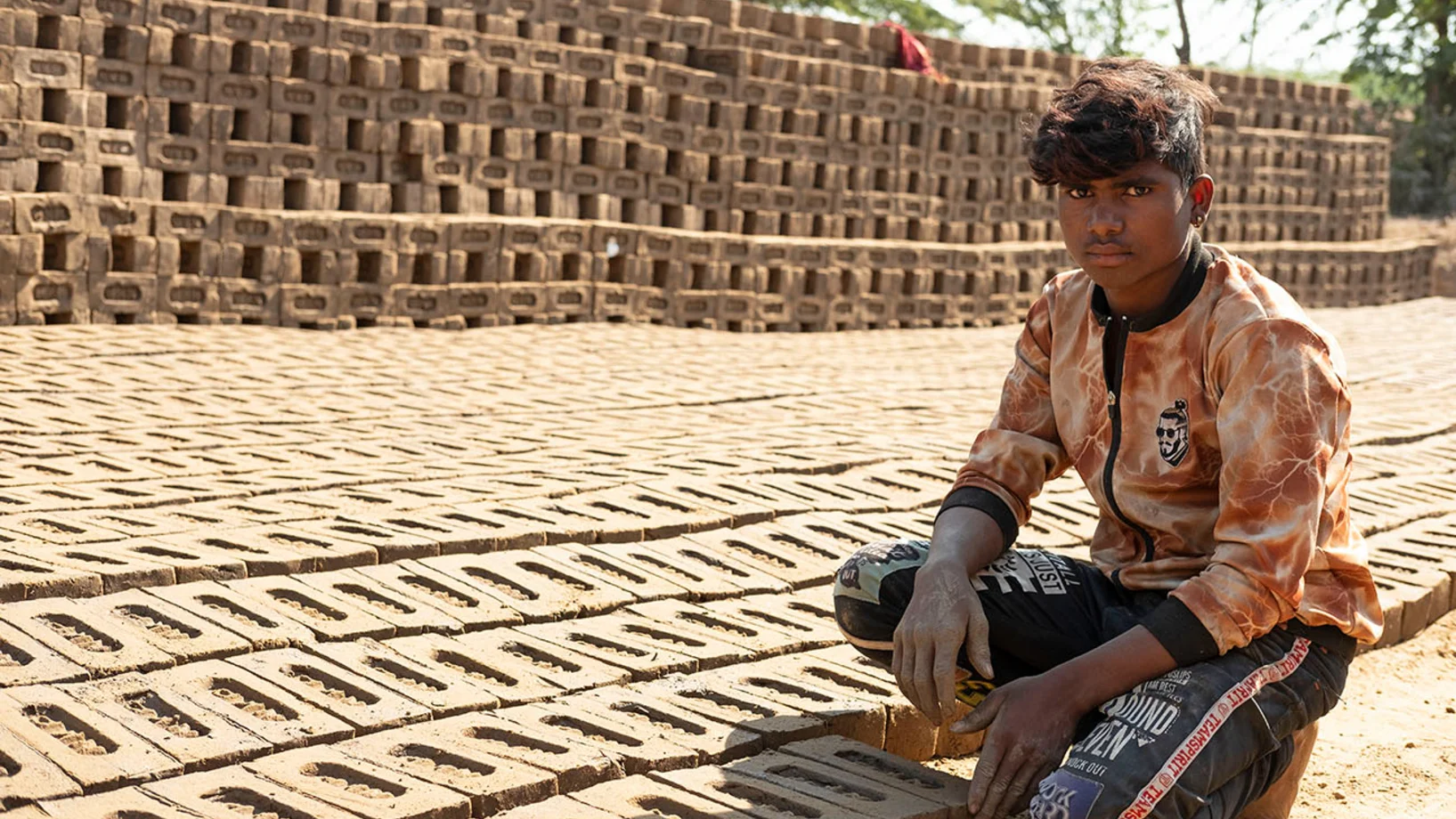Millions of children worldwide work to help their families survive. Child labor is a poverty-related issue, and since its causes are so diverse, fighting it is a complex task. UNICEF focuses in particular on educational programs, information and awareness, and on empowering families and village communities.
The situation
According to estimates by the International Labour Organization (ILO) and UNICEF, 160 million children between the ages of 5 and 17 perform child labor worldwide. Around half of them (79 million) work under dangerous and exploitative conditions. Instead of going to school, these children usually toil for many hours a day, often under dangerous conditions: around mines, on garbage heaps, in factories or with agricultural chemicals and pesticides. Millions of girls are also made to work as unpaid domestic staff and are particularly vulnerable to exploitation and abuse. Child labor is most prevalent in sub-Saharan Africa and, more generally, in crisis regions such as the Middle East.
Child labor goes far beyond simply “helping out a bit”. As long as schooling and recreation are not compromised, helping out and taking responsibility can be wholly beneficial to a child’s physical and mental development. Child labor, which must be combated, is understood to include full-time work or too many hours of work a day at too young an age; activities that are harmful to children’s health; poor pay or no pay at all; responsibilities that are too great and not age-appropriate; work that keeps children from attending school; and activities that undermine dignity and self-esteem, such as slavery or prostitution.
How UNICEF helps
Where sheer survival is at stake, child labor cannot simply be outlawed. Overcoming it is a complex task and takes time. UNICEF programs address this at various levels:
- Education: UNICEF gives education top priority and supports schools with school supplies and ongoing teacher training and development.
- Alleviation of poverty: UNICEF strengthens families locally, for example by providing scholarships or food for schoolchildren.
- Information: UNICEF raises awareness among the population and government institutions about the problem of child labor and the long-term disadvantages of inadequate schooling.
- Legal framework: UNICEF is committed to reforms of labor legislation and to health and education policies that focus primarily on exploitative child labor. UNICEF advises companies on codes of conduct and purchasing regulations.



